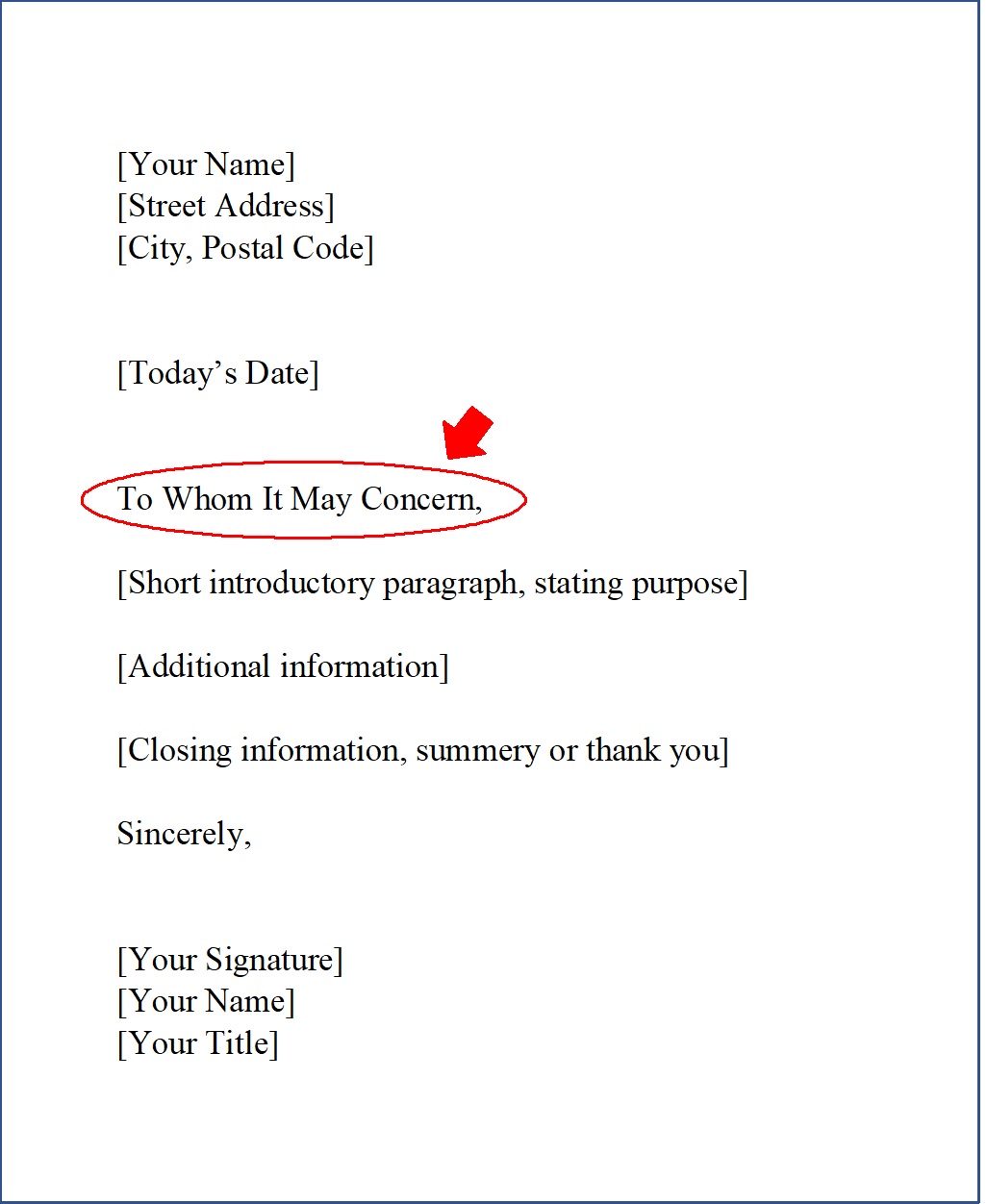Meaning of To Whom It May Concern
You can use To Whom It May Concern at the beginning of a letter, notice or document, when the identity of the reader is unknown. Business letters commonly use the phrase as a salutation. You can used it where the letter is for someone without regard to whom receives it. In other words, the recipient may be a person or an institution.
Why should you use the term To Whom It May Concern?
Whenever possible, try to address letters and emails to a specific person. However, when you don’t know the name of the person to whom the communication is for, then use you can use To whom it may concern. In conclusion, the phrase is a salutation at the beginning of correspondence when the name of the recipient is not available or it is unknown to the sender.
When should you use the term To Whom It May Concern?
You should use To whom it may concern when you are unsure who exactly will be reading the correspondence. For example, you might use it at different times during your career when sending a cover letter, a letter of recommendation, a letter of interest, a letter of introduction, or a prospecting letter, if you don’t have a contact person to address the letter to.
What formatting should be used when using the term To Whom It May Concern?
Refer to the letter shown below for an example on how to do the formatting when using this phrase. You should capitalize the first letter of every word. Use a colon or a comma at the end of the term, and preceding the body of the letter. For instance, the letter below shows the formatting that should be used when using the term.

Alternatives to the term To Whom It May Concern
According to career advisers and some recruiters, To Whom It May Concern is old school and impersonal. You can try to make your cover letter more personal by addressing it to the right person. If you really can’t find the name of the right person, and you want to differentiate yourself from other job applicants, then consider using these alternative terms:
- Dear Sir or Madam,
- Dear Recruiting Committee
- Dear Recruiting Manager
- Dear Hiring Committee
- Dear Hiring Manager
- Dear Human Resources Manager
Another option is to completely drop the salutation and start the first paragraph of the letter straightaway.
About Sense of Purpose
Sense of purpose is the motivation that drives you toward a satisfying future. Hence, your sense of purpose helps you get the most of life and it helps you achieve what matters most to you. Most importantly, it feeds intrinsic motivation and it creates meaning from life. Purpose is our driver. Certainly, purpose is a fundamental component of a fulfilling life. Our purpose is to help you find yours.
Here are some additional resources that you might find helpful: